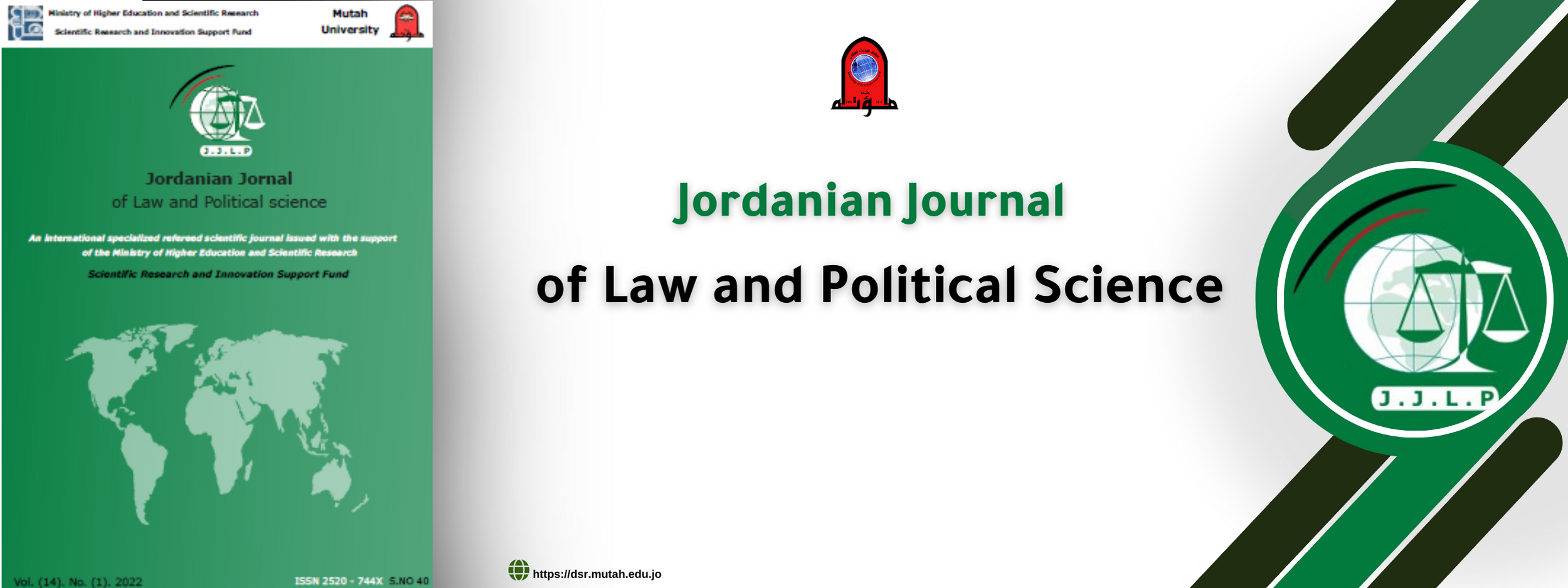The legitimacy extent of tribal tradition and considering it legally accepted: .
the case of the tribal forced relocations
DOI:
https://doi.org/10.35682/jjlps.v15i4.591Keywords:
tradition, tribal tradition, legitimacy, civil responsibilityAbstract
Tribal traditions were legally applicable in the kingdom till the issuance of the law, cancelling tribal laws and courts in 1976. Tribal forced relocation was amongst those tribal traditions, where it refers to forcing the offender's family to a certain degree of consanguinity to leave the area they live in, which is adjacent to the residence of the victim's family, and to go to a distant place.
Relocation is enforced when committing certain crimes, such as murder and honour crimes. Even though the tribal traditions were legally banned, they are still societally recognized and sometimes imposed by authorities.
The context mentioned above urges the researcher to review the legitimacy of enforcing tribal evacuation; since it lacks legitimacy, we noticed that the tribal tradition lacks this legally recognised trait and contradicts enforcing legal texts. It also contradicts the trait of administrative tradition, whose implementation requires not contradicting the written legislative texts; this case is missing in the tribal tradition of evacuation, where we concluded the possibility of establishing the state's civil responsibility instead of implementing such tribal traditions since such evacuation represents illegal activities related to a particular element of that responsibility.
Given these results, the researcher appeals to the legislator to criminalise the action of tribal evacuation and establish the state's civil responsibility in accordance with the harm caused by tribal evacuation, considering the state's right to refer to the enforcing party of these actions. The state is responsible for rescuing the security of souls and property, and any carelessness is viewed as a negative action that entails responsibility.







